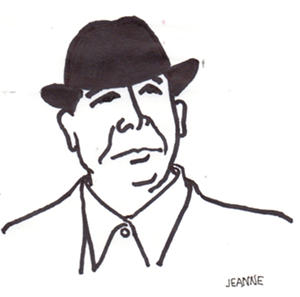Come, my brothers,
let us govern Canada,
let us find our serious heads,
let us dump asbestos on the White House,
let us make the French talk English...
Over the years, our friends and acquaintances have included a large number of teachers, writers, artists, actors, dancers, singers, potters (lots of potters, to the great benefit of our house!), and a fair number of small-business owners, mainly of coffee shops, healthy groceries, innovative restaurants, and independent bookstores. Their opinions on most topics vary widely, but there’s unanimity on one subject: they’re all underpaid.
This is capitalism at work. The good news is that under capitalism, you can do whatever you want. If you want to alarm your parents, you can tell them you intend to be a poet, an actor, or a teacher, and go out and give it a shot. The bad news is that capitalism is shrewd, and will sense that people heading in these directions are following a calling rather than looking for a job, and would do this for even less money than they’re offered. Who’s going to organize the poets to stop writing, or the singers to stop singing, until the price for their products go up? The teachers make stabs at striking, but never stay away long: they need to get back to their students before it’s too late!
We know this from firsthand experience. When I got out of the Army and married Jeanne, we both worked for her father, a charming and successful real estate broker. We made excellent money for a year or so, until a chance encounter led to a long afternoon, after which I stood in front of Jeanne with a load of books in my hand and said, “Guess what? I’ve just taken a job teaching 7th Grade English for $4,400 a year.” After a brief pause, Jeanne said, “Well, good. We better go over and tell Daddy.” I won’t tell that whole story here, but it was exciting. And I hadn’t even mentioned the poetry.
One counter-wave in recent years is the unexpected surge in successful “indie” bookstores, while the larger megastores like Borders and Barnes & Noble have struggled. We’ve always loved small, funky, and brave bookstores: wherever we travel, we head toward them like bees to roses: Malaprop’s in Asheville, The Book Lady in Savannah, The Eagle Eye in Atlanta, Book Store 1 in Sarasota, Inkwood in Tampa (as CL's own Cathy Salustri recently pointed out), et al. In grad school the used books I bought regularly at Ann Arbor’s Slaters were marked with tape, and when our kids asked why so many of our books had yellow stickers on their bindings I told them they were all prize-winners. You can find treasures in stores with used books, like St. Pete’s Haslam’s, where I once picked up a copy of an early Leonard Cohen book, Flowers for Hitler, published in 1964 when Cohen’s poetry sounded more like Allen Ginsberg’s than the singing heartbreaker he became.
One of the liveliest and most successful of these stores, Carmichael’s in Louisville, was founded in 1978 by Eckerd College graduates Michael Boggs and Carol Besse (hence, Carmichael’s), two book-lovers who followed their dream. Michael, a literature major, once acted the titular part in the college’s production of Winnie the Pooh. Shortly afterwards, he visited our house. Our small daughter Gretchen woke up when he came in, and said, “Hello, Pooh.” Michael told us, “Well, I was Pooh; I couldn’t have gone further in acting, so I went into the book business.”
Carmichael’s has recently added Carmichael’s Kids, a store selling books for children. In these parlous days, the opening of Carmichael’s Kids reminds us never to give up hope. Books are good. Kids are good. Let’s get them together.
Let us torture the Senate individually
until they confess,
let us purge the New Party,
let us all lean in one direction
and float down
to the coast of Florida...
—both quotes from “The Only Tourist in Havana” from Flowers for Hitler by Leonard Cohen (McClelland & Stewart, 1964)


